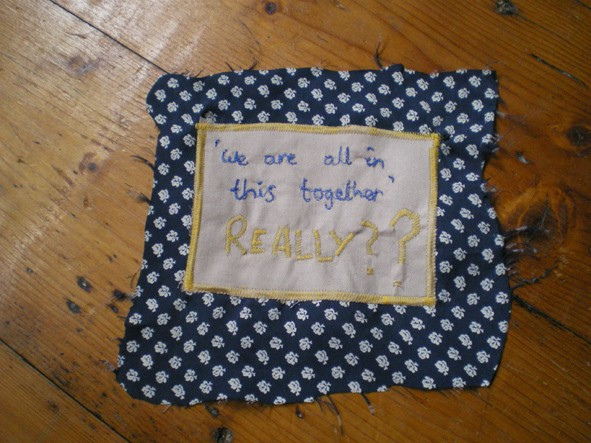Deconstructing privilege
on Archive
There was a day during the last year when I was in Nairobi and I have been harassed by two policemen for the colour of my skin.
There was a day when I got lost at night in a favela in Rio and I was afraid for being the only white foreigner risking to get robbed or attacked.
The other 363 days of the year I had a simpler, more comfortable, privileged life. And for the first 33 years of my life I haven’t even recognised my privilege.
We grew up with a mental model and in a society that makes us believe that we are smarter, and we deserve more, and someone else is always luckier than us, and that there’s an external world we should fight against.
We don’t look at our privilege with a critical perspective. We don’t look at what we have. We are educated at looking at what we don’t have.
Most of the time if we have some privilege we believe it is because we worked hard for it or if we recognise it we give cold shoulders about it.
But still, now we have a choice to try to understand our privileges partially and try to do something about it.
Yesterday a friend shared a silly on-line game “How privileged are you?” that gives you a score based on the privilege you calculate filling a questionnaire.
Privilege is relative. Everyone is more privileged of someone else in this world, and less privileged of someone else (I don’t think you can easily create a score though :)).
I believe that as humans we have a moral obligation to help the unprivileged first and understand our privilege.
On a more radical position I also believe that we have to “deconstruct” our personal privileges and of the people who are more privileged than ourselves. Some people say that if you’re privileged you should feel uncomfortable about it and you should make other people more privileged feel uncomfortable as well.
The more you’re privileged the more you should feel responsible of support the unprivileged in fixing the inequalities (from great power comes great responsibilities).
There are challenges and difficulties that probably I will never understand. When you walk down a dark street do you feel the fear of getting robbed or do you feel the fear of getting raped? When you go to a job interview do fear of getting judged for your abilities or judged for the colour of your skin?
Deconstructing our privilege is not a trivial journey. Many of us are not even aware of it and sometimes we keep denying it.
I never thought of how machist I was until I moved to a different country and after some feminist friends explained me the additional difficulties faced on the other gender side.

CC-BY image courtesy of craftivist-collective
I’ve been working with a black lesbian girl who grew up from a low class family of a global South country where access education is not a given thing. If I ended up in a more privileged position I’m sure it’s not because of any of my merits (meritocracy is itself another concept that deserves to be deconstructed, but this deserves another article…) but because I’m an educated white, middle class, heterosexual, man from the global North.
One of our biggest human moral fallacies is that we tend to ignore and distance ourselves from the evil consequences of what is not near or visible us.
Last year I was using a metaphor to explain privilege. I was saying that you should try make a step in a favela to listen, help others and understand your privilege. Try to make visible what is not immediately visible to you.
And it’s not so difficult. It’s incredible learning to recognise how many chances we have daily to do so.
When you are in a social situation do you usually wish to interact with the cool person in the group or do you usually include the ones that tend to be excluded?
That day after exiting from a real favela I felt really angry at myself. I felt angry because when I got in that situation I was feeling “fear” even if I was trying to hide and ignore my fear. It’s unfortunately absurd to feel fear of your privilege.
It’s unfortunate that this fear is what keeps us distant in many places of our society. Part of it is a real fear of a risk and part denial of what we don’t understand. Only later I’ve been able to know and learn from the kind people of that favela.
If you can do something tomorrow, try to read about, inform yourself and understand some of your privileges. Try to know, listen, support and be an ally of who is less privileged than you. Than try to return back some of your privileges.
Deconstructing privilege is a start of a journey. I believe I am only at the start of it, but it has the potential of making you a better person.